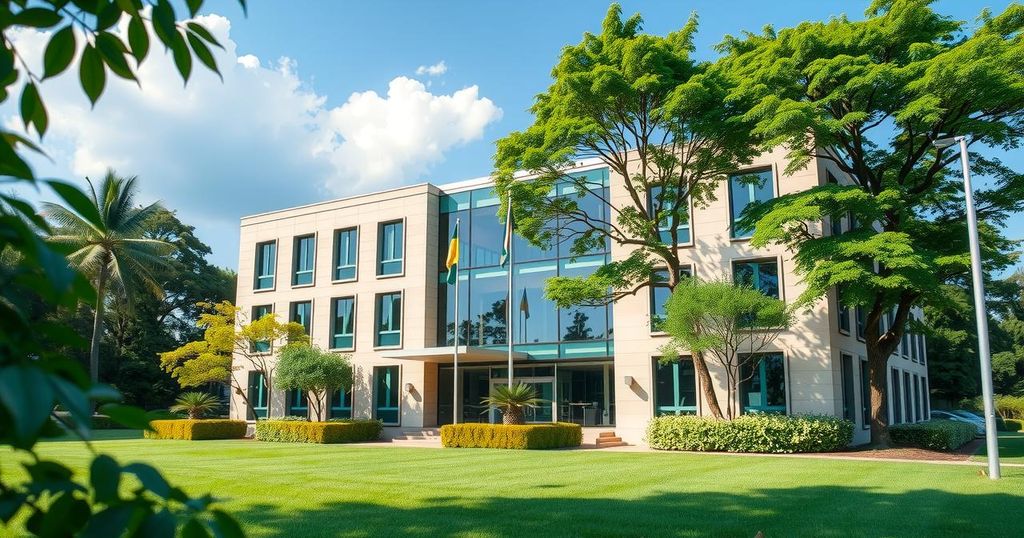Germany has reopened its embassy in Syria for the first time since 2012, following the collapse of Assad’s regime. The reopening reflects improving relations amidst ongoing humanitarian concerns. German Foreign Minister Annalena Baerbock emphasized the need to control extremist factions and pledged continued humanitarian support alongside a potential easing of sanctions under specified conditions.
Germany has officially reopened its embassy in Syria more than three months following the ousting of former President Bashar Assad. The embassy, which had been closed since 2012 due to the Syrian civil war, was reopened by German Foreign Minister Annalena Baerbock during her second visit post-Assad’s regime collapse. Although a limited number of German diplomats will operate in Damascus, consular services, including visa processing, will still take place in Beirut, Lebanon.
The embassy reopening signifies an important step towards restoring diplomatic relations between Berlin and Damascus, which is currently grappling with numerous humanitarian and security challenges as it attempts to recover from the aftermath of Assad’s regime. Approximately one million Syrians, many of whom fled during the civil war, reside in Germany.
During her visit, Baerbock engaged with Syria’s interim leaders and emphasized the need to control extremist factions responsible for recent sectarian violence. “It is imperative that extremist groups are brought under control and those responsible for crimes are held accountable,” she stated following discussions with interim President Ahmed al-Sharaa. She also planned to meet with representatives of various civil society organizations.
Baerbock’s trip occurred shortly after violent confrontations in northwestern Syria resulted in significant casualties, predominantly among civilians and the Alawite minority, to which Assad belongs. Prior to her departure, she condemned the “targeted killing of civilians,” labeling it a grave crime affecting public trust, and urged the transitional government to ensure accountability within its ranks.
Reinforcing Germany’s commitment to assist Syria, Baerbock expressed the nation’s ongoing humanitarian support, hinting at a potential relaxation of sanctions subject to certain assurances. “A new political beginning between Europe and Syria, between Germany and Syria, is possible,” she remarked, underscoring the necessity for guarantees of freedom, security, and equal opportunities for all Syrians, irrespective of their background.
Recently, Germany announced €300 million in aid for Syria, contributing to a donor conference that saw a total of €5.8 billion pledged. Other EU nations, including Italy and Spain, have reinstated their embassies in Syria, with Italy reopening before Assad’s fall and Spain doing so after.
The reopening of the German embassy in Syria marks a pivotal shift in diplomatic relations, as the country navigates challenges stemming from a protracted conflict. German Foreign Minister Annalena Baerbock’s visit underscores the need for accountability among extremist groups and reinforces Germany’s commitment to humanitarian aid in the region. With an emphasis on future cooperation, Baerbock advocates for new beginnings that promise equality and security for all Syrians involved.
Original Source: www.dw.com






